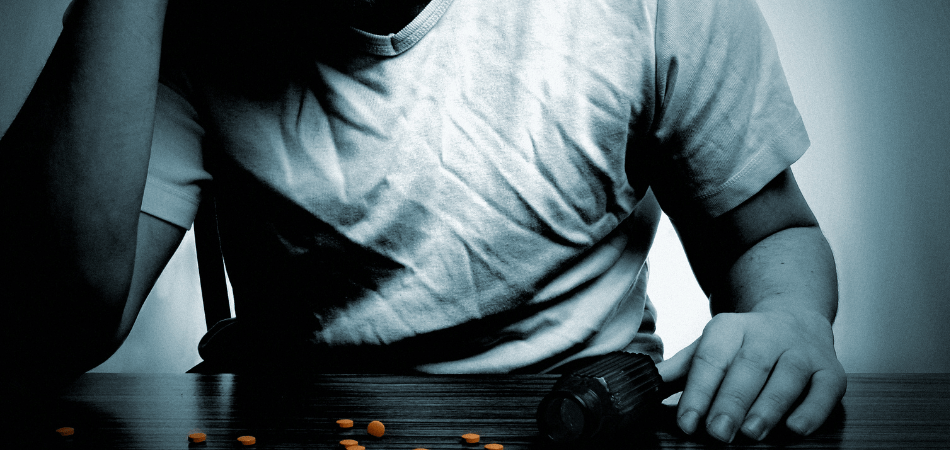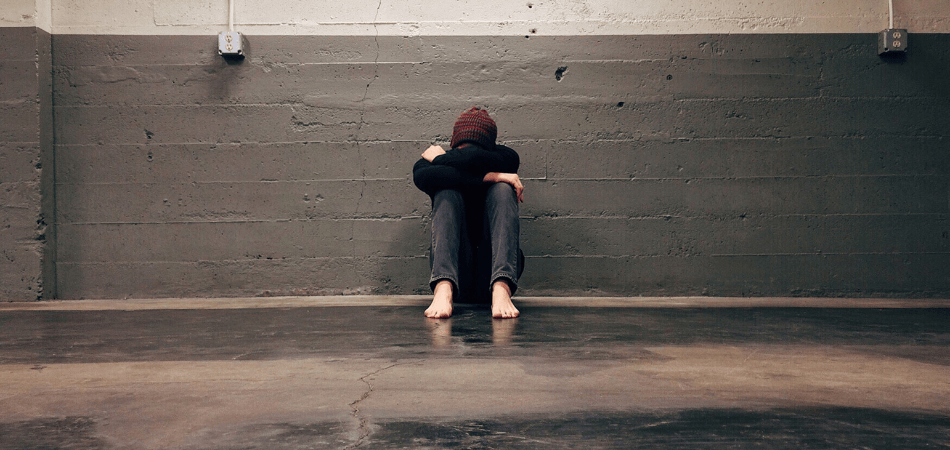
Written by:

Medically Reviewed by:
Last Updated:
April 10th, 2025
Addiction
“Addiction is like doing something that you know will really harm you and only just scraping through. It’s like touching a flame. While most people would never do it again because it was horrible, you not only forget, you want to do it again and you can’t wait or even explain why.”
That is how one Liberty House client described addiction and it really shows the helplessness that the condition can cause. Addiction can affect anyone regardless of age, gender or background and comes in many forms from substances to behaviours or habits that take over your life.
Addiction is a serious condition and if you or someone you know is suffering, it is crucial that you seek addiction help immediately so that you can start afresh.

What is addiction?
Addiction is characterised by an inability to control your use of a substance or activity, despite the harmful consequences. It is a complex condition that can cause serious physical, mental, psychological and emotional problems. Despite common misconceptions, addiction is not a choice or a weakness but is a multi-faceted disorder with diverse and varying underlying causes and harmful symptoms. There are two elements to addiction: physical and psychological.
Certain substances are physically addictive, meaning that your body becomes dependent on you taking them in order to feel like you are functioning normally. This can happen because the substance alters your brain chemistry, resulting in imbalances that can only be corrected by continued use of the substance or by stopping and giving your body the chance to recover through abstinence. These imbalances are what lead to cravings and withdrawal when you try to quit as your body is no longer able to function without the substance.
Often, substances or behaviours are relied on to boost a person’s confidence, keep them calm or repress underlying trauma. This psychological component of addiction, accompanied by physical reliance, is what makes it so difficult to break free from addiction.
What are the different types of addiction?
Alcohol addiction
Classified as the third leading preventable cause of death in the UK, alcohol addiction is a serious condition which can cause adverse effects on both mental and physical wellbeing.
Drug addiction
Drugs can be highly addictive, with some individuals becoming totally reliant on them just to function in everyday life. If not properly managed, drug addiction can lead to dangerous consequences.
Behavioural addiction
Addiction comes in many forms, and it is even possible for individuals to become dependent on behaviours. Gambling, shopping and sex are all classed as behavioural addictions.
Prescription drug
While prescription drugs are administered by doctors in medical settings, they still carry a highly addictive potential. In fact, some prescription medications can contain chemicals found in illegal drugs like heroin and amphetamines.
In fact, any substance or activity that provides a ‘high’ or consistently produces pleasurable results, relieves stress or has certain chemical effects on your brain or body can potentially become addictive. Over 275,000 people needed support for substance abuse disorder in 2021 in the UK with many more also treated for behavioural addictions which shows the extent of the issue.
Who is most at risk of developing an addiction?
While addiction can affect anyone, there are certain risk factors that can make some people more susceptible to developing an addiction. These include:
- Genetic predisposition: If you have a family member who has struggled with addiction, you may be more likely to develop an addiction yourself. This is because addiction is often caused by a combination of genetic and environmental factors.
- Mental health disorders: People with mental health disorders such as depression, anxiety, or bipolar disorder are also more likely to develop an addiction as substances or behaviours can be used to self-medicate the symptoms of these disorders.
- Trauma: People who have experienced trauma such as physical or sexual abuse are also more prone to addiction because they may use substances or behaviours to numb the pain of these experiences.
- Stress: Chronic stress can lead to changes in the brain that make you more vulnerable to addiction. This is because substances or behaviours can be used to temporarily relieve feelings of stress and anxiety.
Do I have an addiction?
One thing that is very important to understand is that addiction will do everything in its power to
convince you that you do not have a problem, and it is able to hijack the part of your brain responsible for logical thinking and decision-making.
This can make it difficult to see the situation clearly and make decisions that are in your best interest. To help you see through the fog of addiction, here are some questions to ask yourself that may show you need help:
- Do I keep using the substance or engaging in the activity even though it’s causing problems in my life?
- Have I unsuccessfully tried to cut down or stop abusing substances or engaging in the activity?
- Do I feel a strong urge or compulsion to keep using drugs or alcohol or participate in addictive behaviour?
- Does my substance use or behaviour interfere with my work, school or home responsibilities?
- Do I continue to use the substance or engage in the activity despite negative consequences, such as financial problems, relationship difficulties or legal trouble?
If you answered yes to any of these questions, it’s possible that you may have an addiction and should seek professional help. Addiction is a treatable condition, and there are many resources available to help you recover but the sooner you get started, the better your chances of recovery from addiction.
The risks and consequences of addiction
Addiction and substance abuse disorder can have a variety of dangerous consequences, both for you and for those around you. In terms of health, addiction to various substances can cause immense harm and, in some cases, can even lead to death.
One of the most dangerous aspects of addiction is its ability to take over your life. You may find it difficult to maintain healthy relationships or keep up with your responsibilities at work or home. As your addiction progresses, you may start to lose interest in activities that you used to enjoy and may withdraw from friends and family.
Addiction can also lead to financial problems, as you start spending all your money fuelling your substance abuse disorder or addictive behaviours.
You may also engage in risky behaviours such as driving while under the influence of drugs or alcohol or sharing needles. These behaviours can put both you and others at risk.
Spotting the signs of addiction in a loved one
It can be difficult to watch a loved one struggle with addiction. However, it is important to be aware of the signs and symptoms of addiction so that you can provide support and assistance as soon as possible. Here are some of the most common signs of addiction to look out for in your loved ones.
- Altered mood or behaviour: People with addiction may become withdrawn, depressed, or anxious. They may also exhibit sudden changes in mood or behaviour.
- Changes in appearance: This can include letting their personal appearance go, weight changes, poor hygiene and dark circles under their eyes.
- Unusual sleeping habits: They may have difficulty sleeping or they may sleep more than usual.
- Changes in eating habits: People with addiction may lose their appetite or they may eat more than usual.
- Isolation from friends and family: Your loved one may start to distance themselves from you and stop participating in social events.
- Loss of interest in hobbies or activities: As addiction takes over, your loved one may stop participating in activities that they once enjoyed as all their energy and focus is directed towards their addiction.
- Financial problems: An addicted individual may start to experience financial difficulties as they spend more money on their addiction.
- Problems at work or school: You may notice that your loved one is having difficulty meeting their responsibilities at work or school.
If you notice any of these changes in your loved one, it’s important to have a conversation with them about what is going on and offer your support.
Did you know?
- Substance abuse disorder doesn’t just mean abusing alcohol or illegal drugs, it can also mean prescription drug addiction.
- Addiction is a relapsing condition. Even after a successful recovery, there is always a risk of relapse. This makes continued support and monitoring crucial for people in recovery.
- Addiction is not a choice. While it is true that people can choose to start using drugs or alcohol, addiction is not a voluntary condition. It is a chronic disorder that alters the way the brain functions.
- There are many “functioning” addicts who are able to maintain their jobs and personal lives while still being addicted to substances and who may show no outward signs of their addiction. However, addiction will always have a negative impact on a person’s life, no matter how well they seem to be doing.
- The negative stereotypes and judgement associated with addiction can prevent many people from seeking the help they need out of fear of judgement or rejection. However, it is important to remember that addiction is a real condition that should not be stigmatised but rather treated with compassion and understanding.
What does addiction recovery involve?
There are three main stages of recovery:
- Detox is the process of overcoming physical dependence on drugs or alcohol. This can be a difficult and uncomfortable process, but it is an important first step in recovery.
- Rehab is the second stage and involves addressing the psychological aspects of addiction. This may include therapy, counselling, and support groups.
- Aftercare is the third stage which provides the continued support and assistance that people in recovery need to maintain their sobriety. This may include attending meetings, therapy and support groups.










